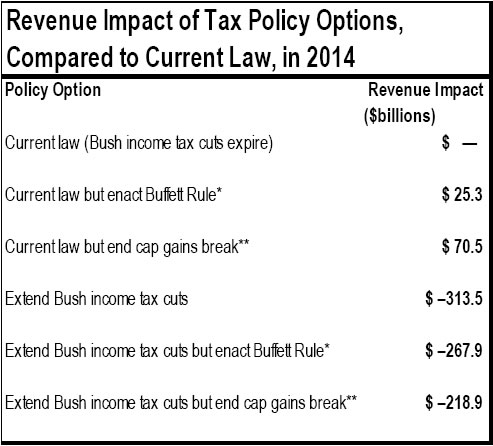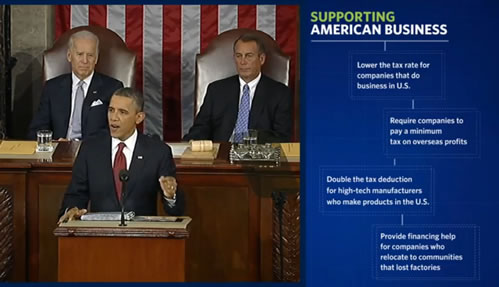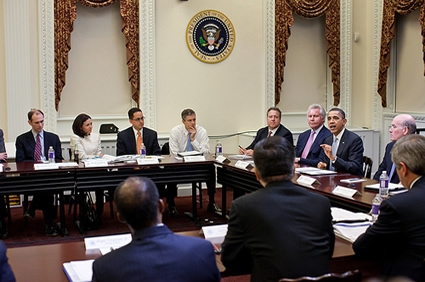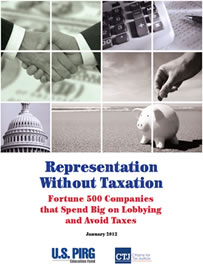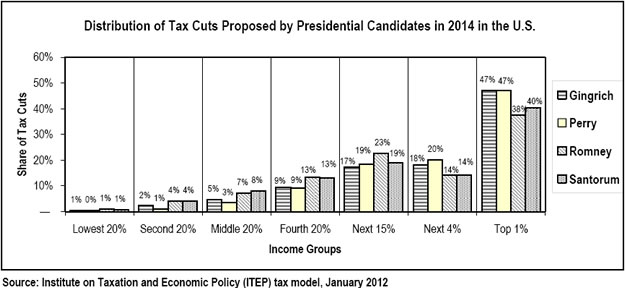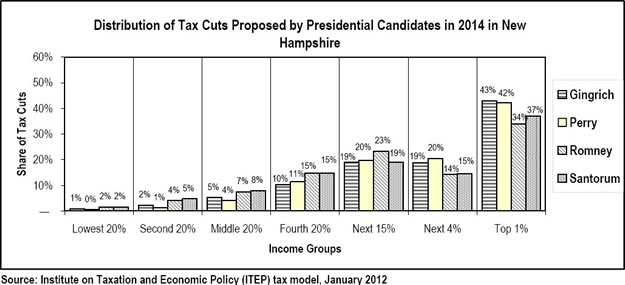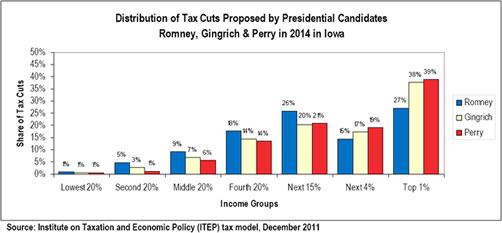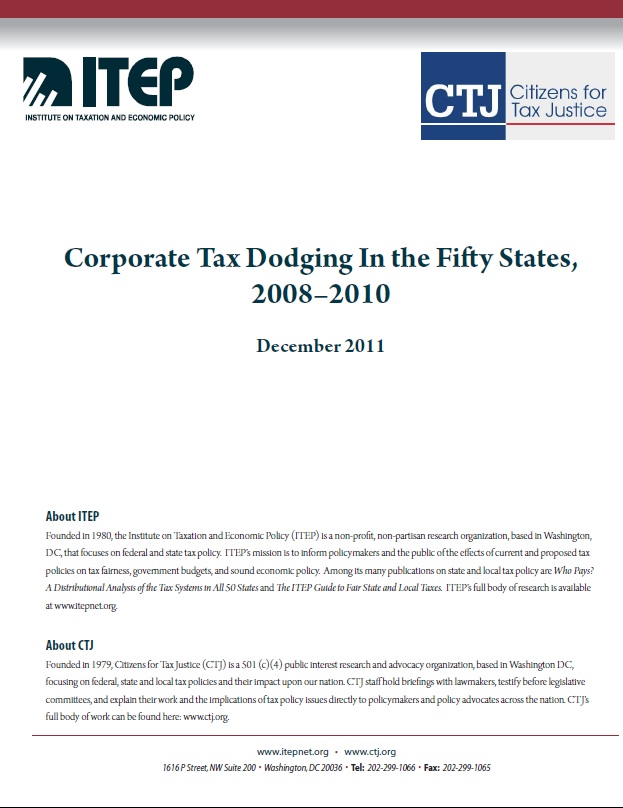February 7, 2012 10:54 AM | Permalink | ![]()
Facebook announced this month that it plans to give its  co-founder and controlling stockholder, Mark Zuckerberg, a $2.8 billion cash windfall. Amazingly, Zuckerberg’s bonanza will cost Facebook absolutely nothing. Well, actually, a lot less than nothing, since it will help save Facebook, Inc. a staggering $3 billion in federal and state corporate income taxes.
co-founder and controlling stockholder, Mark Zuckerberg, a $2.8 billion cash windfall. Amazingly, Zuckerberg’s bonanza will cost Facebook absolutely nothing. Well, actually, a lot less than nothing, since it will help save Facebook, Inc. a staggering $3 billion in federal and state corporate income taxes.
These tax breaks are expected not only to wipe out all of Facebook’s federal and state income taxes for 2012, but also to generate a $0.5 billion tax refund of taxes the company paid in the past.
According to Facebook’s SEC filing (in connection with its upcoming initial public stock offering), the company has issued options to favored employees which will allow them to purchase 187 million Facebook shares for little or nothing in 2012. Options for 120 million of these shares (worth $4.8 billion) are owned by Zuckerberg. The company indicates that it expects all of the 187 million vested options to be exercised in 2012.
Under current tax law, exercise of all of the options will generate $7.5 billion in tax deductions for Facebook, which will produce $3 billion in federal and state tax reductions for the company. According to Facebook:
“we estimate that this . . . option exercise activity would generate a corporate income tax deduction [that] exceeds our other U.S. taxable income [and] will result in a net operating loss (NOL) that can be carried back to the preceding two years to offset our taxable income for U.S. federal income tax purposes, as well as in some states, which would allow us to receive a refund of some of the corporate income taxes we paid in those years. Based on the assumptions above, we anticipate that this refund could be up to $500 million.”
As for the future, Facebook adds:
“Any portion of the NOL remaining after this carryback would be carried forward to offset our other U.S. taxable income generated in future years, which taxable income will also be reduced by deductions generated from new stock award settlement and stock option exercise activity occurring in those future years.”
Senator Carl Levin, who has proposed to limit the stock option tax loophole, told the New York Times, “Facebook may not pay any corporate income taxes on its profits for a generation. When profitable corporations can use the stock option tax deduction to pay zero corporate income taxes for years on end, average taxpayers are forced to pick up the tax burden. It isn’t right, and we can’t afford it.”
 Whatever one may think about the propriety of Zuckerberg’s huge personal gain, at least he will have to pay federal and state income taxes (at ordinary tax rates) when he exercises his $4.8 billion worth of stock options. Certainly, we need not pity him for his big tax bill, since even after paying his taxes, he’ll still end up with $2.8 billion.
Whatever one may think about the propriety of Zuckerberg’s huge personal gain, at least he will have to pay federal and state income taxes (at ordinary tax rates) when he exercises his $4.8 billion worth of stock options. Certainly, we need not pity him for his big tax bill, since even after paying his taxes, he’ll still end up with $2.8 billion.
But the $3 billion in accompanying tax breaks that will go to Facebook, Inc. are another story. As Senator Levin points out, those corporate tax breaks are unjustified.
A little history is helpful here. Prior to 2006, the rules governing how corporations treated stock options for shareholder-reporting purposes were in complete conflict with how stock options were treated for corporate tax purposes. The Financial Accounting Standards Board (FASB) thought that options should not reduce corporate profits reported to shareholders, while IRS allowed companies to deduct the full value of exercised options. Since corporations are eager to report as high as possible “book” profits to their shareholders and as low as possible taxable profits to the IRS, this was the ideal world from the point of view of corporations.
It seemed obvious to logical observers that one of these approaches had to be wrong. Yet each agency had an argument for its position, because each addressed the issue from a very different perspective:
a. FASB’s pre-2006 rule that stock options are not a real cost to corporations reflected first, the fact that the options have zero cash cost to the companies, and second that options neither decreases a company’s assets nor increased its liabilities. All in all, a seemingly airtight case.
b. In contrast, the IRS concluded (and continues to conclude) that because exercised options are treated as taxable wages to employees, “symmetry” requires that they be treated as tax-deductible wages for employers.
In CTJ’s view, FASB’s pre-2006 position (no book expense) was right,[1] and the IRS’s position (employer tax deduction) is wrong.
While the IRS is wrong about stock options, its “symmetry” argument was not pulled out of the air. The tax code often does try to match income received by workers with a corresponding deduction for employers. But that’s not always the correct answer (or what the tax code specifies).
For example, if an airline allows its workers to fly free or at a discounted price on flights that aren’t full (for vacations, etc.), then the workers ought to be taxed on that fringe benefit, even though the airline incurs no measurable cost in providing it. But no one has ever suggested that airlines should get a tax deduction (beyond actual cost) for letting their employees fly for free or at a discounted price.
In the case of stock options, there is a clear economic benefit to the employees (if the stock goes up in value), but a zero cost to the the employer. So it’s more reasonable to conclude that while employees should be taxed on stock option benefits (“all income from whatever source derived” as the tax code states), employers should only be able to deduct their cost of providing those benefits, which is zero.
A final argument, made by some economists, is that a corporate write-off for stock options (book and tax) is appropriate because of the theoretical cost to a company’s shareholders when new stock is issued at a discounted price to employees. For example, suppose a company has 100 shares of stock outstanding, worth $10 a share. If the company gives its CEO 100 shares of newly issued stock for free, then the value of the other 100 shares ought to fall to only $5 a share.
But in real life, this potential “dilution” effect on stock prices to shareholders is typically quite minor. In the case of stock options, any dilution “cost” is even smaller, if not nonexistent, since the “cost” occurs only when the price of the stock has gone up!
Most important, just because a company does something that has a cost to its shareholders does not mean that it should or does generate either a book expense or a tax deduction for the company. For example, suppose a company’s stock is selling at $10 a share. The company, in need of more cash, issues a large block of new stock at $9 a share to attract a prominent new investor (say Warren Buffett). The pre-existing shareholders are theoretically hurt by this discount, but it doesn’t generate a book cost to the company or a tax deduction
The bottom line is that there’s something obviously wrong with a tax loophole that lets highly profitable companies make more money after tax than before tax. What’s about to happen at Facebook offers a perfect illustration of why non-cash “expenses” for stock options should not be tax deductible — or book deductible either.
Photo of Facebook Logo via Dull Hunk and photo Mark Zuckerberg via KK+ Creative Commons Attribution License 2.0
[1]Unfortunately, in 2006, FASB responded to political pressure and muddied its previously-correct position. Starting it 2006, FASB required companies to book an expense in calculating profits reported to shareholders for the estimated future value of stock options to their recipients. This new book write-off is calculated when the options are issued, well before the true value at exercise can possibly be known. Not surprisingly (since corporations want to report high profits to their shareholders), these book write-off estimates are always wrong, and are generally much lower than the tax-deductible amount.
This new financial treatment of options is widely derided by stock analysts. Indeed, companies for which options are significant go to great pains to encourage investors and analysts to ignore these non-cash “expenses” in evaluating the companies’ earnings — often offering an alternative earnings report that ignores them.




